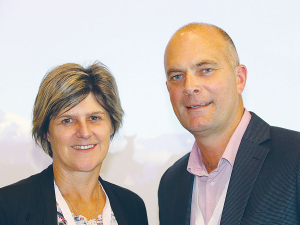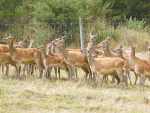First Light exports 99% of its product. The UK and US are the main markets.
“The UK is a key market. We broke away from the traditional German market although this is still extremely important to us,” Frost told Rural News.
“Our focus is retail and that’s where the UK fits. Equally the US is growing in importance for us.”
But while things are going well on farm, there are challenges in the processing plants. Frost says obtaining and retaining skilled staff to run its plants efficiently is not easy.
And because consumers want product 52 weeks of the year it’s important that farmers and processors can meet this demand.
First Light Foods also markets wagyu beef which, says managing director Gerard Hickey, complements venison in the market. Both are premium products.
“It is incredibly important to have the two products working side by side in markets,” he says.
“In the US, the beef is the lead act and venison follows. But in the Middle East, venison is definitely the lead act and the beef follows.
“It’s good to have the two complementing each other.”
Some farmers provide premium products to them all year round, others provide ‘mainstream’ products -- a ‘release valve’ in their farm system which enables them to quit stock when weather gets bad.
Banking on deer
Deer is a solid industry, says Rabobank’s head of business development, Hamish Midgely.
He told Rural News that the industry is now highly profitable with venison prices still about $9/kg – more per kilo than any of the other primary industries.
And it has great by-products – including velvet.
“But it comes with infrastructural costs when setting it up such as fences and yards and you have to weigh that up with alternatives.”
Midgely says some Southland deer farms that were converted to dairy could possibly revert back to deer.
“We could see reversion of marginal areas back into deer, and the industry operating in that rolling hill country rather than on the intensive dairy land.”
Deer has the advantage of putting less pressure on the environment, Midgley says. And while there are problems with wallowing and fence running, these can be fixed.











